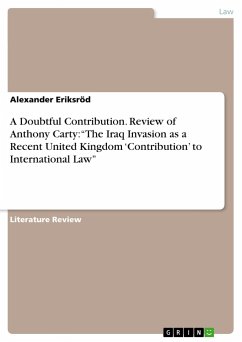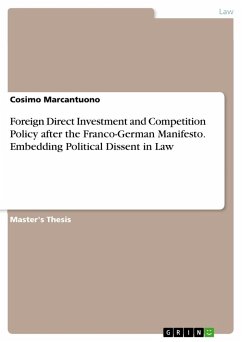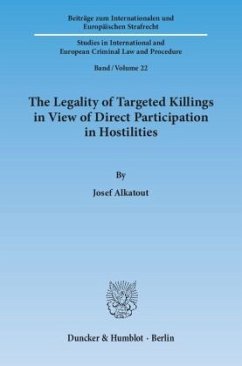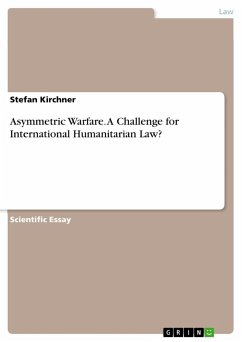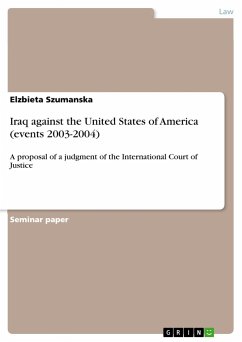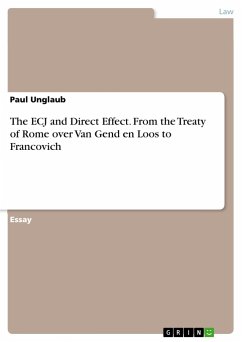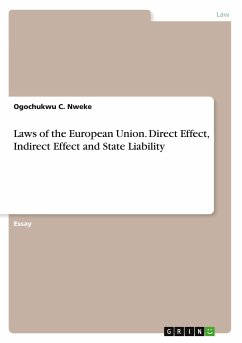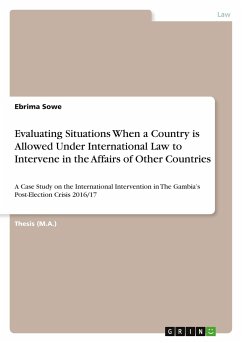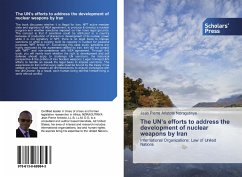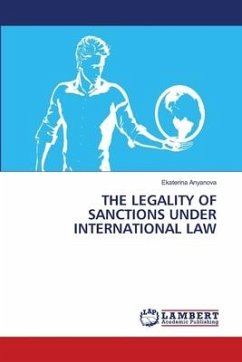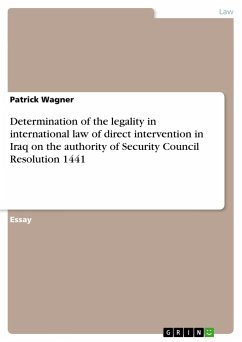
Determination of the legality in international law of direct intervention in Iraq on the authority of Security Council Resolution 1441
Versandkostenfrei!
Versandfertig in 1-2 Wochen
15,95 €
inkl. MwSt.
Weitere Ausgaben:

PAYBACK Punkte
0 °P sammeln!
Essay from the year 2003 in the subject Law - European and International Law, Intellectual Properties, grade: 1 (A), University of Kent (Kent Law School), language: English, abstract: International law provides for a general prohibition of the use or the threat of use of force to settle international disputes. Only very few exceptions from this rule exist and are clearly defined in the UN Charter.The question must thus be, if resolution 1441 constitutes such an exception of the rule and thus authorises the use of force against Iraq. A close examination of the resolution shall therefore be the ...
Essay from the year 2003 in the subject Law - European and International Law, Intellectual Properties, grade: 1 (A), University of Kent (Kent Law School), language: English, abstract: International law provides for a general prohibition of the use or the threat of use of force to settle international disputes. Only very few exceptions from this rule exist and are clearly defined in the UN Charter.The question must thus be, if resolution 1441 constitutes such an exception of the rule and thus authorises the use of force against Iraq. A close examination of the resolution shall therefore be the starting point of this discussion. However, it must be said that the wording of any Security Council resolution is subject to individual interpretation. A second step must thus be to apply rules for the interpretation of Security Council resolutions if such rules exist at all.It appears that only very little authoritative guidelines to the interpretation of Security Council resolutions existand that thus the only reliable source of guidance is previous interpretations. Those promoting direct intervention in Iraq without a further resolution refer to NATO bombings of Kosovo. Similarly to the present situation in Iraq, the Security Council did not explicitly authorise the use of force in that case either. Later, the international community claimed that because no agreement could be reached in the Security Council, military action without Security Council authorisation was necessary in order to prevent genocide. The argument being of course, that a legitimate aim could justify the use of illegal means.The question whether direct intervention in Iraq can be legitimate on the basis of resolution 1441 seems to be a much broader question, which embraces moral and ethical considerations, too. Unfortunately, a discussion of the moral and ethical legitimacy of intervention in Iraq cannot be the topic of this essay. Nevertheless, it is important even in legal considerations tokeep these aspects of the debate in mind, because the Security Council itself is not a purely legal but a political institution and any of its decisions is determined by more than just legal factors.After having looked at the Kosovo case and its implications for the present situation it seems to be essential to examine the role of customary law for the Iraq conflict. This is because if an opinio juris has emerged among states to forcefully intervene for humanitarian or other reasons resolution 1441 would not be needed to authorise the use of force.




